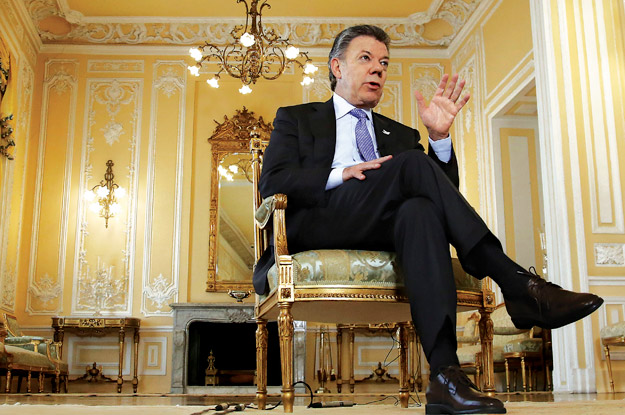In the new issue of Americas Quarterly, we asked people, “What would you tell the next U.S. president about Latin America?” To see other authors’ responses, click here.
Dear Mister / Madam President,
I want to take this opportunity, before your term, to discuss an important matter for both of our nations and many other countries around the planet: the global drug problem.
As you know, in April 2016 — at the request of Mexico, Guatemala and Colombia — the United Nations General Assembly Special Session, UNGASS 2016, was held. At this meeting, there was an important debate on the changes we need to make in order to be more effective in preventing the use of illicit drugs as well as fighting against the mafias that thrive on this business.
Plainly put, the so-called War on Drugs launched by President (Richard) Nixon in 1971 has not been won. Perhaps it is time to recognize, as the U.S. surgeon general has said, that this war on drugs has become a war on people who use drugs. For this reason, many countries have been urging a change in direction, and Colombia, with the moral authority we have earned as the country with the greatest loss of blood and treasure in this “war,” is at the forefront of this effort.
Since his participation at the 2012 Summit of the Americas in Cartagena, President (Barack) Obama demonstrated an openness to debate and having constructive dialogue on how to make improvements in this war against illegal drugs. We value this posture by the United States.
In this spirit of openness, I previously asked President Obama the question I now put to his successor: How can I look a Colombian peasant in the eye and tell him he will go to prison for cultivating marijuana, while in American states like Colorado and Oregon it is now legal to plant, sell and consume it? Part of what we need to do is to have an honest reckoning of what is happening and seek greater coherence in looking at this issue.
While it is certainly true that my country — thanks in large part to the support provided by the American people through Plan Colombia — has made great strides against drug trafficking, this is about more than the progress made by just one or two countries. This is about what we can achieve as a community of nations. Any gains Colombia achieves usually become another country’s loss, because as long as there is demand, merchants of all types will step in to provide the supply.
This is why I have gone public with absolute conviction that the moment has arrived for the world to adopt a new approach in its drug control policies.
This is not a call for legalization. It is a call to recognize that between the two extremes of all-out war on drugs and full legalization, there is a broad range of options that we can explore together. We can find new ways to help us improve drug abuse prevention in our young people, grant more humane treatment of drug consumers, increase cooperation against organized crime, and provide economic alternatives to peasants and other vulnerable communities who are trapped by the narcotrafficking business.
At UNGASS 2016, some steps in the right direction were taken, such as accepting that countries need a greater degree of flexibility and autonomy in implementing drug conventions, and promoting measures to mitigate the risks and impacts of consumption.
However, much remains to be done. Colombia’s proposal is that we analyze the various options without prejudice or ideologies, based on objective scientific evidence and facts; that we do not keep imposing the heaviest burden of the law on consumers or small growers; and that we pursue with greater collaboration and determination the big mafias, precursor chemical suppliers, and money launderers. We have to strike criminal organizations where it hurts them the most — in their finances.
Mr. or Madam President, for the good of our nations and our young people, let’s strengthen our alliance to face the drug problem in a more humane and practical way. Let’s prevent consumption, rehabilitate addicts, provide opportunities for peasants, and vigorously pursue the criminals. This is the only path to success.
We can do better.
—
Juan Manuel Santos is the president of Colombia




